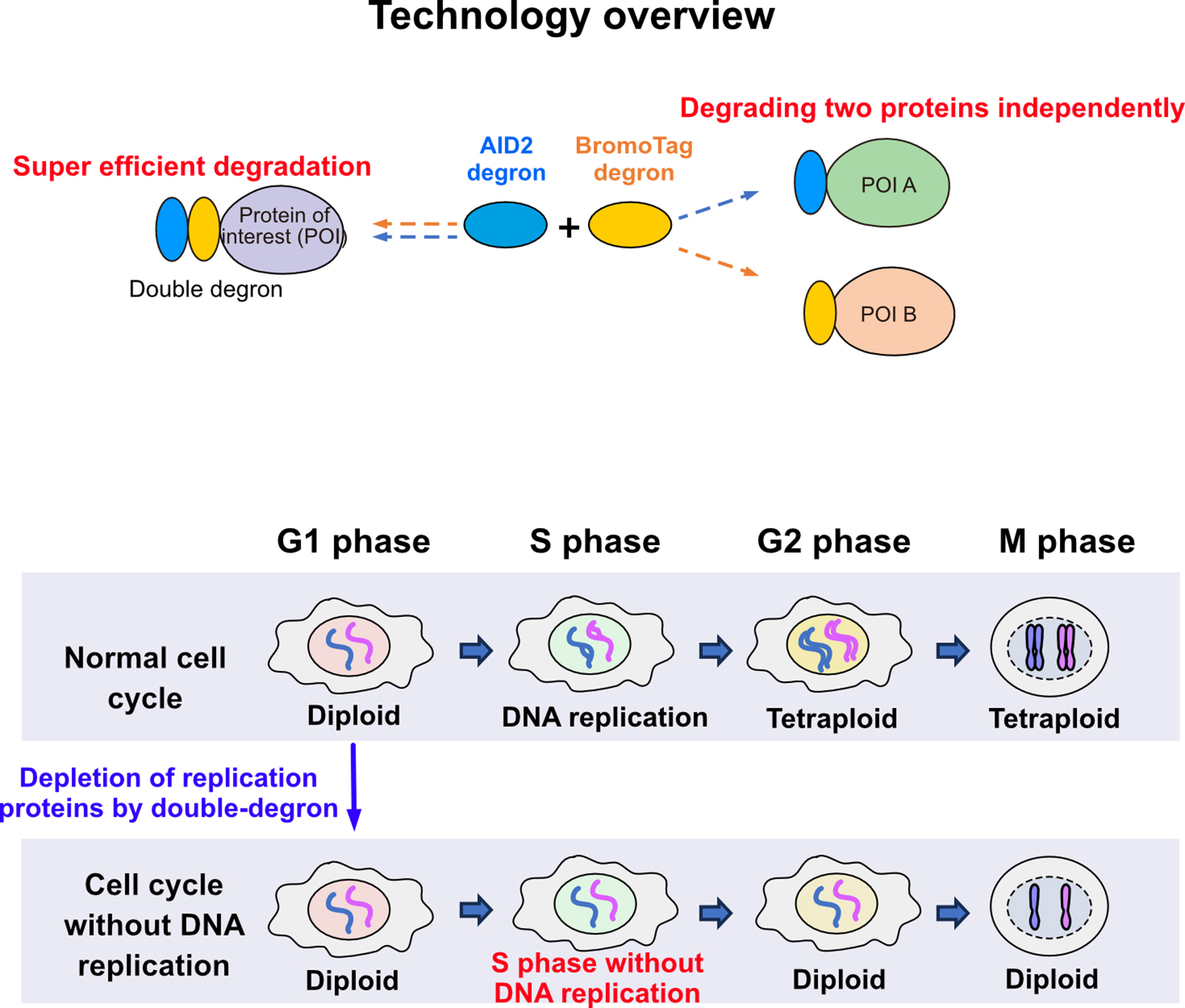Development of double-degron technology enables super-efficient and rapid degradation of target proteins.
– Cell cycle progresses to mitosis without DNA replication –
Press release
Combination of AID2 and BromoTag expands the utility of degron-based protein knockdowns
Yuki Hatoyama*, Moutushi Islam*, Adam G. Bond, Ken-ichiro Hayashi, Alessio Ciulli and Masato T. Kanemaki.
EMBO Reports (2024) Aug 23. DOI:10.1038/s44319-024-00224-4
![]() Press release (In Japanese only)
Press release (In Japanese only)
Prof. Kanemaki at the NIG and his colleagues have developed the Auxin-Inducible Degron (AID) technology, which enables rapid protein degradation for functional analysis of the proteins of interest. The group further refined it with the AID2 (Nishimura et al., Nat. Meth., 2009; Yesbolatova et al., Nat. Commun., 2020). However, they noted that some proteins remain even after degradation by AID2. In response, the group developed a double-degron technology by combining AID2 with another degron, BromoTag, achieving super-efficient and rapid degradation of target proteins. This advancement allows for the functional evaluation of proteins that were previously difficult to analyze. Additionally, they demonstrated the independent control of degradation for two different target proteins using AID2 and BromoTag.
In an application of this double-degron technology, the group successfully achieved complete inhibition of DNA replication by depleting DNA replication factors. They found that cells can progress through the cell cycle to mitosis without DNA replication, suggesting that cells may lack the system to recognize whether DNA has doubled. This finding not only demonstrates the versatility of degron technology but also offers deeper insights into the relationship between DNA replication and the cell cycle.
This study was carried out by Prof. Masato Kanemaki’s group at NIG, in collaboration with Prof. Alessio Ciulli at the University of Dundee and Prof. Kenichiro Hayashi at Okayama University of Science.
This study was supported by JSPS (21H04719, 23H04925), and JST CREST (MJCR21E6). Yuki Hatoyama and Moutushi Islam at SOKENDAI were supported by JSPS Research Fellowship (DC2) and MEXT Scholarship, respectively.
This study was published in EMBO Reports on August 23, 2024.

Figure: An overview of the expanded versatility achieved by combining degron technologies. The double-degron approach induced cell cycle progression to mitosis without DNA replication.















